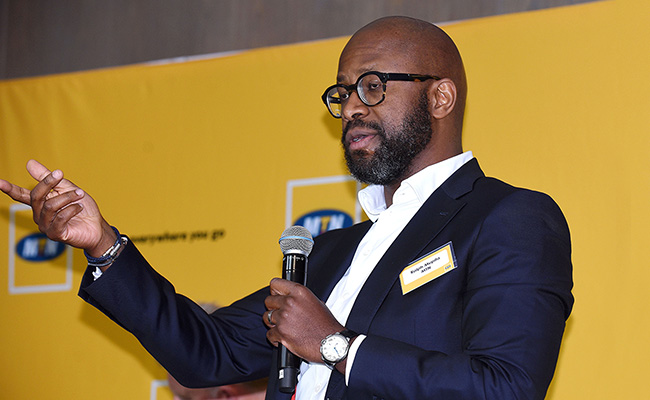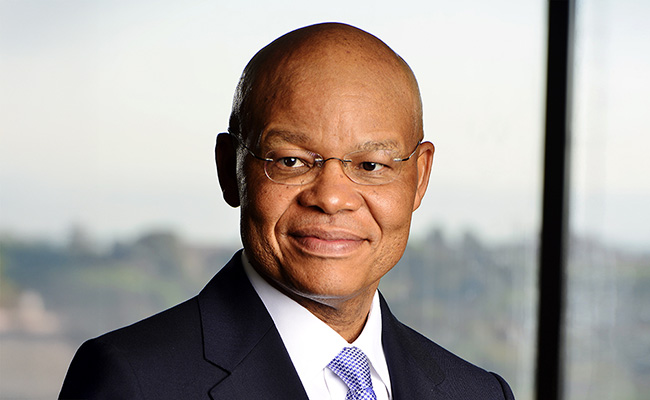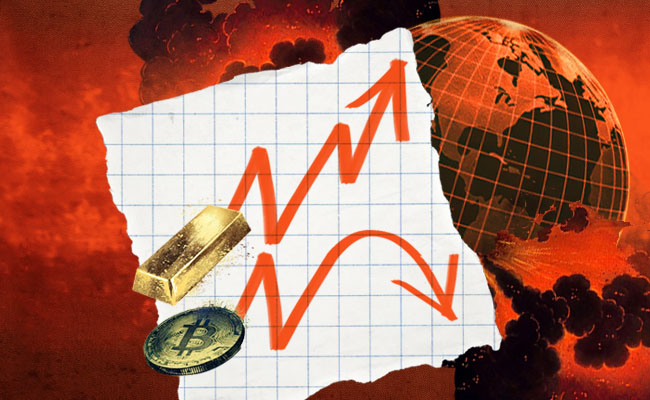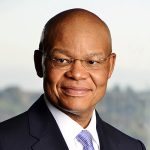Cellular company MTN might have delivered what CEO Ralph Mupita believes was its “best first half in eight years”, but this wasn’t nearly enough to mask a searing hangover from its misadventures in Iran and Afghanistan.
The numbers alone seem impressive: a 60.6% growth in pre-tax earnings to R46.6bn for the six months to June. Even adjusting for currency moves, this still amounted to growth of 22.4%.
And yet, the bloodletting on the JSE was brutal: MTN’s stock plunged 8.4% on the day, wiping R26.4bn from the company’s market value within hours.
The catalyst? Revelations that the US authorities have launched a grand jury investigation into MTN’s business in Iran and Afghanistan, two countries where the cellular company has been battling allegations of corruption for many years. “MTN is co-operating with the department of justice and voluntarily responding to requests for information,” it said in its results announcement.
Both of those countries face US sanctions, and the investigation is likely to examine whether MTN helped terrorist groups in Afghanistan – where it has since sold its subsidiary – and, in the case of Iran, whether it bribed officials to win a mobile licence back in 2005, as rival Turkcell claims.
The Turkcell case has bubbled for years, and is now set to be heard by South Africa’s Constitutional Court. Cedric Soule, Turkcell’s lawyer, said this year that there is evidence that the company paid a $400,000 “bribe”. “This was money that we say was paid to an Iranian government official to give the licence to MTN instead of Turkcell,” Soule said.
But that’s only one half of its Middle East hangover. Back in 2019, the families of former military servicemen killed in attacks in Afghanistan brought a class action lawsuit against MTN under the Anti-Terrorism Act, claiming the company paid “protection money” to Al-Qaeda and the Taliban. This money helped provide “material support to known terrorist organisation”, the families said.
There is a political dimension to this too, which only makes this case more complicated.
MTN’s chair for many years was Cyril Ramaphosa, who is now South Africa’s president, and his US counterpart, Donald Trump, has flagged South African support for Iran as one aggravating factor in his decision to impose a 30% tariff on South African goods. And Mcebisi Jonas, MTN’s current chair, was appointed by Ramaphosa as a “special envoy” to Washington in April.
Nonetheless, Mupita says MTN has been “working through these issues calmly”, after it was told of the grand jury probe. “The department of justice has not accused us of any wrongdoing. We felt it important to engage with them voluntarily and we are also engaging with South African authorities,” he said. “These matters need to move from jurisdictional arguments to the merits of the case.”
Data, data and more data
To many in MTN, these might seem like fringe issues. But the grand jury investigation has now thrust the reputational risk entailed in MTN’s business model of operating in some of Africa’s most lawless markets firmly into the spotlight.
It certainly diverted attention from an otherwise impressive performance, characterised by better economic conditions in places like Nigeria, a rising demand for data, and promising performances from its fledgling fintech businesses.
Mupita said the company will reorganise itself around three pillars: connectivity, fintech and digital infrastructure. Its numbers show precisely why: in the first half of the year, MTN witnessed a 36.5% jump in data revenue, and a 37.3% rise in fintech revenue.
It means MTN now has nearly 298-million subscribers across the continent – equal to about 20% of Africa’s population. Of this, about half, 149.5-million, are “active data customers”.
Another helpful theme is the unmet need to remit money efficiently, and cheaply, across the continent. This helped MTN’s Mobile Money customer base grow to 63.2-million people who, cumulatively, made 11.1-billion transactions in those six months.
“We have always said the business has strong operational momentum, but often the macro environment takes away from that. In this period the macro was constructive, and you could see that strength come through,” said Mupita.
Evidently, he is trying to look past the mess in the US courts, and keep an eye on the prize. “The opportunities in data and fintech are compelling. By organising ourselves as three platforms with different capital and skill requirements, we are positioning MTN for the next decade of growth.”
MTN’s good luck was that fortunes turned in Nigeria, as the naira stabilised at about N1,500 to the dollar – much-needed stability after a turbulent three years when the currency plunged from the N466 it was trading at in January 2023. Ghana’s currency, the cedi, also strengthened as gold sales rose, which helped MTN’s numbers.
South Africa, however, remains a problem. Service revenue in the country grew just 2.3%, while fintech revenue fell 2%, as it battled intense competition in the prepaid market. To remedy this, MTN’s board has opted to shake up its local leadership.
“South Africa is where we are seeing the most intense competitive dynamics,” Mupita admitted. “Our strategy requires us to put through some price increases because we are carrying heavy costs from spectrum auctions and capital expenditure. The pressure is there but we are investing more in distribution and dealers to win back market share.”
It’s not just prepaid customers either; MTN faced competition from a number of fibre-to-the-home operators, all of which have tried to snaffle market share. But Mupita is betting that by ensuring MTN remains top-of-mind for connectivity in South Africa, it will retain its relevance.
“Whether you are in a forest or a game reserve, you will have high quality connectivity from base stations, fibre, undersea cables or low-earth-orbit satellites. Your device will connect to the best available form of connection. Our job is to ensure MTN is part of that ecosystem.”
The numbers, at least as far as data demand goes across the wider continent, are extraordinary. Nigerians, for instance, used about 500MB of data per month back in 2017, but today, they use 14.3GB on average. The trend is similar in other countries, attesting to a world in which connectivity is the name of the game, and those with the deepest pockets to build the infrastructure will win.
But if that is the lofty goal that Mupita is reaching for, the deeper question is whether MTN can un-pretzel itself from all its legal ghosts for long enough to actually achieve that vision. On this score, the jury – or rather the grand jury – is very much out.
Top image: MTN CEO Ralph Mupita. Picture: Gallo Images/Business Day/Freddy Mavunda.
Sign up to Currency’s weekly newsletters to receive your own bulletin of weekday news and weekend treats. Register here.














